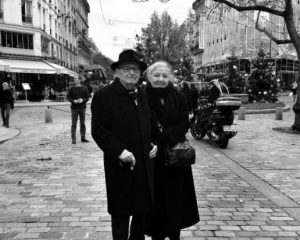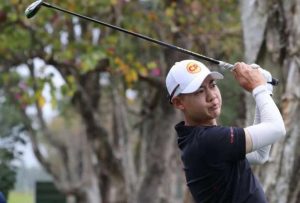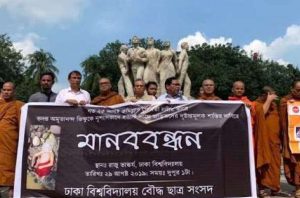
When Venerable Tsunma Lobsang Rinchen Khandro decided to reach out to her incarcerated cousin over 20 years ago, she had no idea that gesture would lead to a much greater one. Through a conversation with family, she learned that this family member was a American Vietnam War veteran, who had suffered greatly.
The Venerable asked where she could find her cousin, and then wrote her first letter to a prison inmate. Although at the time she had not yet become Buddhist, she shares: “I had very clear ideas of what kindness and compassion meant to those who had no one in this life. I instinctively felt this, and in my heart I felt that I should try to help.”
She wanted to be a friend to this man, and indeed continued the correspondence for several years. In retrospect, according to the Venerable: “This single act would slowly begin to open a path for me toward greater and greater compassion for myself and others.” The correspondence ended after the year 2000, when she left the United States to live overseas.
It was five years before her move abroad, in 1995, that Venerable encountered Buddhism at the Sakya Monastery in Seattle, Washington. Upon moving to Scotland in 2000, she continued to attend teachings with Geshe Tasha for eight years, via distance learning. When possible, she would attend Buddhist events and was even able to attend the teaching of His Holiness in Nottingham, England, in 2008.
Her correspondence with her incarcerated cousin didn’t continue at that time. The seeds were still there, but latent. In those years, the Venerable’s attention was drawn to Buddhist social projects in Asia. In fact, it was at the 2008 Nottingham teaching that she first saw the opportunity to sponsor young Tibetan Buddhist monks.
After visiting a stall with information about the Sera Jey Monastery in South India, the Venerable took the opportunity to sponsor some of the monastery’s young monks. Soon she found herself as the sponsor of not just one monk, but four! “It was strange, but enjoyable. The more I gave, the more I seemed to have!”
The Venerable, however, soon felt unsatisfied by just donating money: “It was not enough to just send money, I wanted to be fully involved.” Thus inspired, she left for a trip to South Asia.
She would return to India and Nepal not just once but several times, over the course of several years. Her most memorable experience in India and Nepal was meeting Venerable Ngawang Palden, with whom she eventually collaborated to establish a rural health clinic. The clinic is located in the Ramecchap District of Northeastern Nepal, five hours by bus from Kathmandu, through the hills.
Moved by Venerable Palden’s desire to establish a health clinic in this rural agricultural community (where he was raised), Venerable Lobsang Rinchen Khandro decided to assist Venerable Palden with his project. She applied for early retirement and quit her job with the National Health Service in Scotland. Still unsure of how to gather the resources needed to construct the clinic, Venerable began intense prayers. After several months, something auspicious happened; Her next door neighbor offered to buy her house, which would provide her with most of the funds that were needed for the construction of the health clinic.
In October 2013, she left for Nepal. There, in co-ordination with Lama Palden and the villagers, the construction work began: “We worked nonstop, never taking a rest. The village helped to break rocks, move earth, and clear the land. It was an amazing feat! Within six months, even with some rainy weather, the first floor of the building was completed.” It was compassion that kept the Venerable engaged and committed.
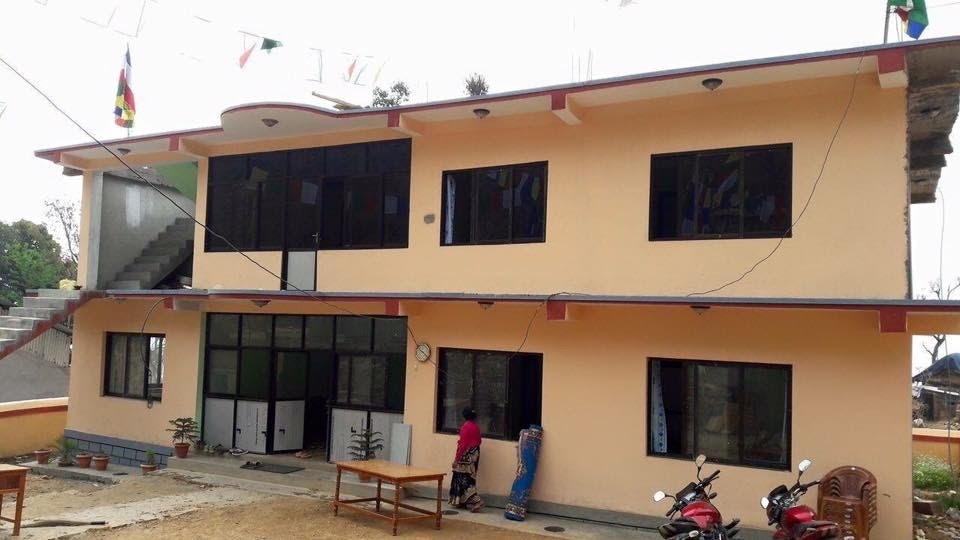
To tell people of the medical services that were to be available at the new clinic, Venerable Palden went on tour in the hills of Ramechhap: “He went to each village and encouraged them to come and register. He invited Nepali newspapers and government officials. On the opening day we had thousands of people who came and registered at the hospital. There are photos showing the long queues. We were officially granted a certificate to open practice.” The official name of the clinic is Sunapati Bhwasa Charity Medical.
When the tragic earthquake hit Nepal in April 2015, the work on the clinic was put on hold: “We delayed the grand opening until the earthquakes had settled.” Miraculously, the clinic was spared and nothing was damaged “not even a lightbulb”. At that time, Venerable Lobsang Rinchen Khandro contacted the Mandala Trust in the UK—with whom she had worked previously—to see if they could help, since many villages in the area surrounding the clinic were affected: “They were willing and very quickly the funds were on their way to Venerable Palden. Sixteen people died in the village—we were the lucky ones. Other villages were completely destroyed. As I had hoped, our hospital served as a house for those left homeless, we served food, and gave them blankets and medicine. And our reputation grew.”
Today, the clinic is a great success, and it is still growing: volunteer doctors, from abroad and from Nepal, came to the region to provide medical care and community services such as baby-and-mother talks and medical emergency talks. This care continues today. “We have a working pharmacy and other clinical features. And we had our first birth at the clinic, the mother and baby were healthy and very pleased that they didn’t have to face the long journey to Kathmandu, and any complications that the long journey might have brought!”
The clinic maintains a modest income by renting out rooms to volunteers, but they still seek further funding to buy medicine: “Somehow, our little clinic keeps running a day at a time.”
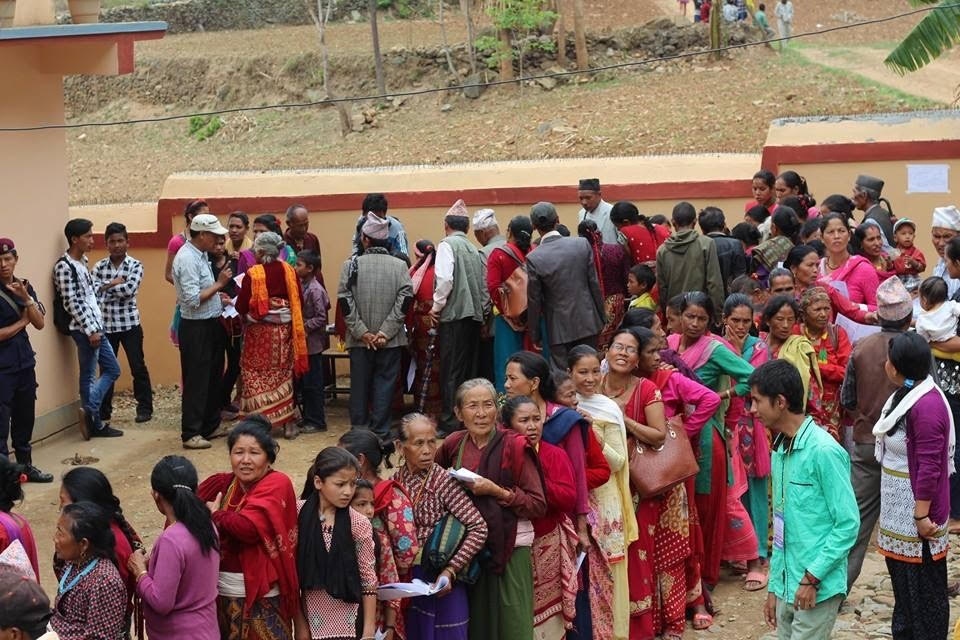
After pouring her heart into the clinic, Venerable Lobsang Rinchen Khandro moved back to the West to begin work for the Liberation Prison Project, which she had previously heard about during the Nottingham teaching of His Holiness: “As a wandering nun, I was traveling here and there with no real place to stay. In June 2016 I was offered a place in the USA. So in September 2016, I returned to work in the offices of the Liberation Prison Project, on the east coast.”
Remarkably, it was the move back to the USA that reconnected her with her earlier prison work, coming full circle: “I didn’t know this at the time, but this would lead me to reconnect with the past. As I was working, I thought a lot of my own family and caring for them as I was now closer to them. As I meditated one afternoon, a thought arose in my mind about what the word family meant to me. Who was my family? As I continued along this trail of thought, I suddenly remembered my cousin. How odd to have forgotten him so completely! I wondered if he was okay and still alive! I felt ashamed to have forgotten about him! I wanted to find out how he was and write to him!” So she searched for the hospital, where he was living, and found out that he was still there. They reconnected joyfully, through letters.
The Liberation Prison Project was founded in 1996 by Venerable Robina Courtin, an Australian Tibetan Buddhist nun. It is affiliated with the Foundation for the Preservation of the Mahayana Tradition (FPMT). On its website it states that: “The Liberation Prison Project offers spiritual advice and teachings, as well as books and materials, to people in prison interested in exploring, studying, and practicing Buddhism.”
In addition to writing to her cousin, the Venerable now has sixteen students whom she writes and teaches. Drawing back on her decades of Buddhist training and practice, she says she feels she is making an impact, now armed with tools to teach the prisoners and to guide them on their path to liberation: “Buddhism opens our mind and teaches us to rethink what we know about how the mind works and examine it very closely. By successfully taming our own minds, we can help others by acting as an example and show them that this positive way of being is a happier state, a more peaceful state.”
By first reaching out to a biological family member, and then to all other suffering beings, Venerable Tsunma Lobsang Rinchen Khandro helps the prison population in America, one compassionate letter at a time.
See more
The Liberation Prison Project (Official website)







